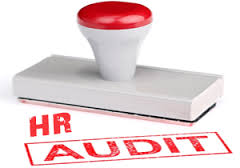
New overtime exemption rules can be confusing, and the government is ramping up enforcement.
by Bernadette Jones, SPHR, SHRM-SCP
According to a recent poll by Visionova Human Resources Support Center, fifty-seven percent of respondents said that they have never conducted an audit of their organization’s HR functions.
Understandably, nonprofits and small business managers are busy and wear many hats. So, you may ask, why should I conduct an HR audit now? In light of the new overtime exemption rules that go into effect December 1, 2016, conducting an audit is critical.
An HR audit can position your organization to be compliant with the Fair Labor Standards Act changes, reduce the risk of employee claims, lawsuits fines, and penalties. HR audits help to spotlight your organization’s culture as one that protects your organization’s and employee’s rights while driving your mission forward.
Conducting an audit is not a one-and-done deal. Instead, effective audits should be performed annually. There are four types of HR audits. For this article, we will focus on the HR Compliance Audit, which evaluates compliance with the FLSA, Department of Labor wage and hour rules, state and federal workplace laws, and industry regulations.
Reasons to Take an Audit
- New FLSA overtime exemption rules become effective December 1, 2016.
- Job descriptions are outdated.
- Your organization uses I-9 Independent contractors.
- Employee claims or lawsuits continue to increase.
Employee claims of unfair wage and hour practices or discrimination in the workplace may trigger an unwelcome visit from a federal or state investigator. Recently, random employer audits have been increased to identify workers who are misclassified as exempt, or independent contractors, and to prevent violations of wage and hour rules, and recordkeeping rules. So be prepared and compliant in 2016.
Department of Labor Ramps Up Enforcement
The objective of the Department of Labor is “to require employers to proactively comply with employment laws while enlisting employees in their enforcement strategy.”
The DOL states that while many employers “have a culture of compliance, others have a culture of non-compliance. These employers depend on luck and happenstance to avoid workplace violations.” Still others make a “calculated decision whether to comply with employment laws, a catch-me-if-you-can attitude.”
The mission of the DOL is to replace “catch me if you can” with Plan/Prevent/Protect. The DOL’s 3Ps strategic compliance enforcement initiative has been in motion since 2014 when the proposed overtime rules were first announced.
The objective of the initiative is to “require employers to proactively comply with employment laws while enlisting employees in their enforcement strategy. Enhancing transparency in the workplace will improve workers’ awareness of their rights and enable them to report violations.” The DOL has hired hundreds of inspectors and other enforcement officials warning employers who fail to address risks and vulnerabilities in their workplaces that they will be out of compliance and may be subject to fine, penalties, and remedial action.
Free Webinar Shows You How to Start
Conducting regular HR audits remains a key ingredient in protecting your organization and employees. If you are still not sure where to start, join our webinar on Thursday, June 30, 2016, from 11-11:30 a.m. Also, check out our Three-Minute Audit.
Bernadette Jones is HR Business Partner and Co-Founder at Visionova HR Consulting.
Visionova HR Consulting
